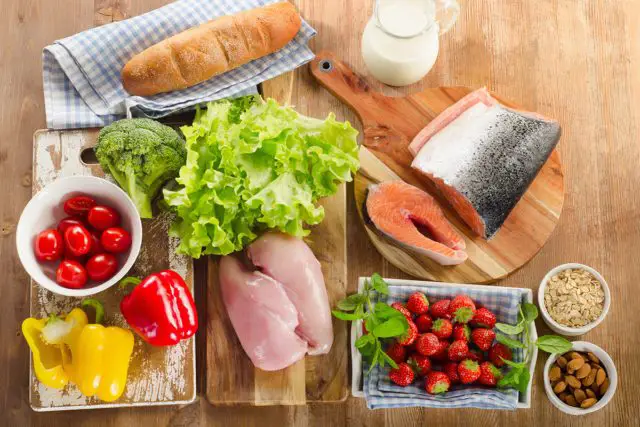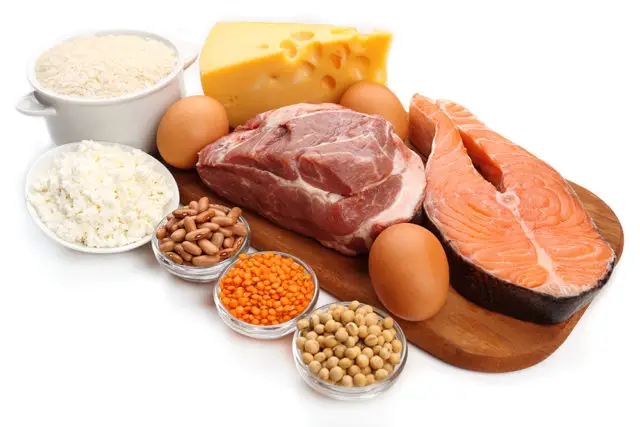Foods come in many different forms although they always have the same basic chemical functions: supplying the necessary energy to our body’s cells and providing raw material for the growth, restoration, and maintenance of vital tissues and organs.
The different substances that fulfill these functions are called nutrients. Since carbohydrates and fats are the main energy source, the value of any kind of food depends primarily on the content of these 2 nutrients.
The purposes of the nutritional processes
- To supply energy for the maintenance of the organism and therefore its functions.
- To provide the necessary material for the construction of body structures, its renovation, and repair.
- To provide the essential substances for the regulation of chemical reactions occurring in the body.
Energy function
Physically, energy is consumed to carry out any type of transformation or movement. Therefore, our body requires energy and a reserve of it.
Energy needs come from oxidation in the cells of the immediate constituents: carbohydrates, fats, and also starches. This energy is used primarily for protein synthesis, and for the active transport of substances through the cell membrane.
Although we assume that proteins provide energy by being classified as organic, the energy they provide is of a minimal amount. Therefore, we do not identify them as the main source of energy.
What are the functions of food?
Knowing that food can be divided according to its content in substrates, we can classify them according to the function they contribute to the organism. The main functions -or objectives- of food are energy supply, plasticity, regulation, and reserve.
Therefore, the division of food by function can be shown as follows:
- Energy. Carbohydrates and fats
- Plasticity. Proteins
- Regulators. Minerals and vitamins

Food is the solid or liquid products we eat (milk, bread, tomato, cheese, etc.), from which the body gets the nutrients it needs to carry out its functions, and expelling everything that is not usable.
Instead, when we talk about nutrients, we mean the chemical compounds that food contains and that provide our cells with everything they need to function. A large amount of food we eat daily contains carbohydrates, proteins, and fats, but many times we do not know how to consume them or how they contribute to our bodies.
Here is an explanation of how this works out:
1. Carbohydrates. They are the main source of energy and vitamins. It is recommended to consume in its unprocessed or integral versions. They provide four calories per gram. They are found in cereals, rice, pasta, fruits, potatoes.
2. Proteins. They contain essential elements for the organism used in the maintenance of muscles, organs, bones, skin and to synthesize enzymes, hormones, antibodies, and other elements. They provide four calories per gram. They are found in dairy, eggs, legumes, nuts, vegetables.

3. Lipids. They provide energy, vitamins, and essential fatty acids. Saturated fats of animal origin cause the accumulation of bad cholesterol (LDL). The monosaturated and polyunsaturated fats are in vegetables and marine products and deliver Omega -3 and Omega -6. They provide approximately 9 calories per gram and are mostly found in oils and nuts.
The best foods as energy suppliers
A key to keeping us vital and energized is in the food we eat. If you have ever suffered from fatigue or physical and mental exhaustion, here is a list of foods that give you energy:
Banana and watermelon. These fruits are very good for increasing your energy. Its great advantage is that they provide us with fiber, vitamins, and minerals. Also, you can eat them at any time.
Carrots and potatoes. These foods help raise blood glucose levels, which gives us much more energy. As if this were not enough, we add with them, very important nutrients such as vitamin A, vitamin C, folic acid, and potassium.
Corn and oatmeal. Remember that your breakfast should not be limited to a piece of bread and a quick coffee. If you add corn (flakes), oatmeal or cereals to your mornings, you will feel more energetic during the day, because these foods are digested more slowly. This helps blood glucose to remain stable.
Water. When there is not enough water, our body becomes dehydrated and that leads us to feel tired. So drink plenty of water during the day to stay awake and energized!


Mar 4, 2020 ⋅ Please provide a meta description by editing the snippet below. If you don’t, Google will try to find a relevant part of your post to show in the search results. ParagraphStart with the building block of all narrative.Font sizePreset sizeCustomDrop cap
Toggle to show a large initial letter.Drop Cap Style
Custom Top Margin (px)Custom Bottom Margin (px)Custom Maximum Width (px)
- Paragraph
Search results for “legumes”
The best foods as energy suppliers
A key to keeping us vital and energized is in the food we eat. If you have ever suffered from fatigue or physical and mental exhaustion, here is a list of foods that give you energy:
Banana and watermelon. These fruits are very good for increasing your energy. Its great advantage is that they provide us with fiber, vitamins, and minerals. Also, you can eat them at any time.
Carrots and potatoes. These foods help raise blood glucose levels, which gives us much more energy. As if this were not enough, we add with them, very important nutrients such as vitamin A, vitamin C, folic acid, and potassium.
Corn and oatmeal. Remember that your breakfast should not be limited to a piece of bread and a quick coffee. If you add corn (flakes), oatmeal or cereals to your mornings, you will feel more energetic during the day, because these foods are digested more slowly. This helps blood glucose to remain stable.
Water. When there is not enough water, our body becomes dehydrated and that leads us to feel tired. So drink plenty of water during the day to stay awake and energized!

Prego Restaurant based in Perth. We are famous for Italian Food, Fine Dining, Seafood, Private Room Dining. You will get the best service and quality food here.